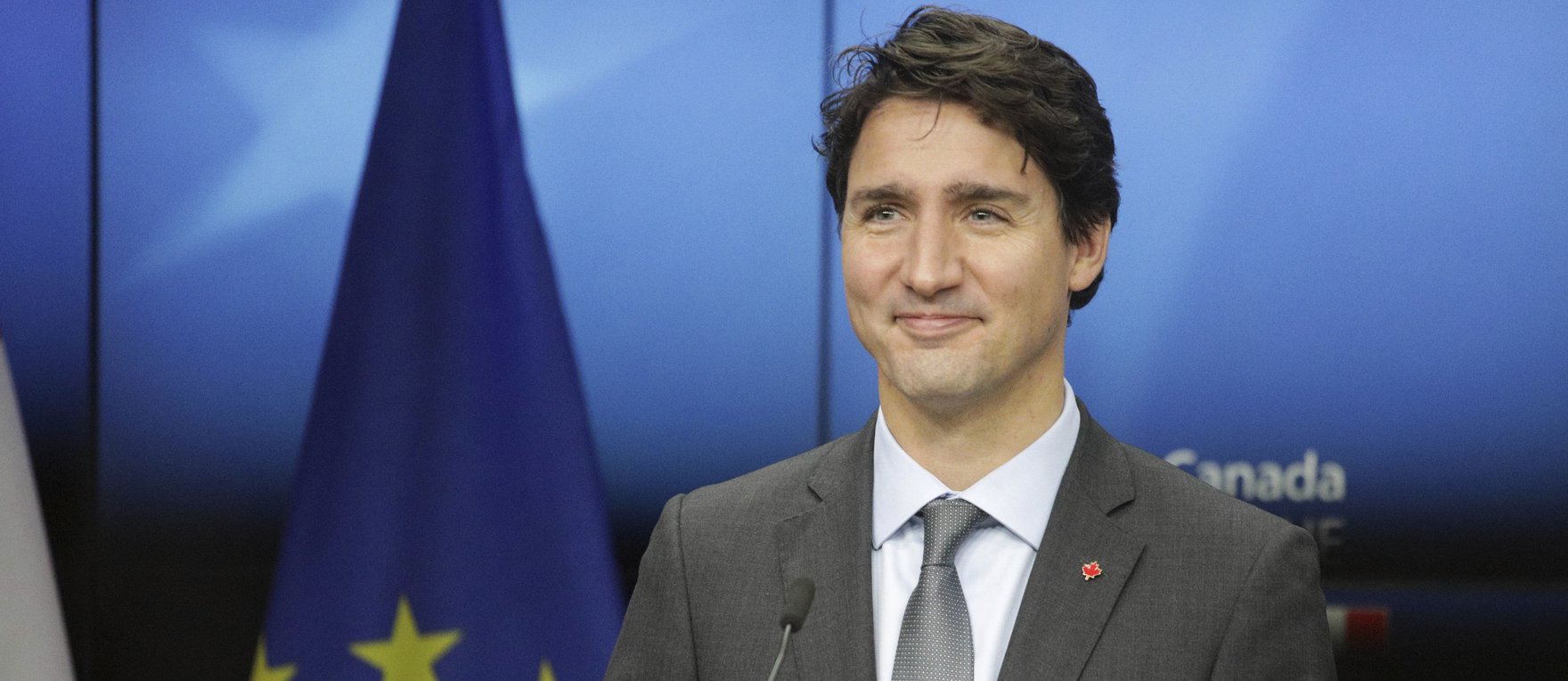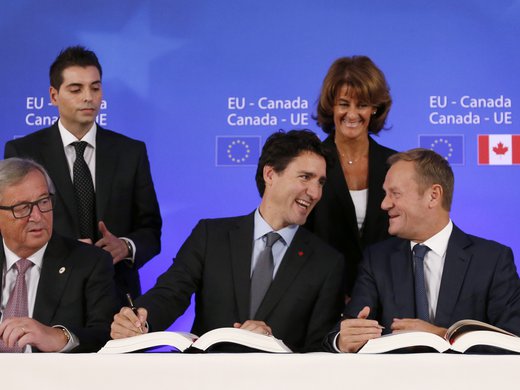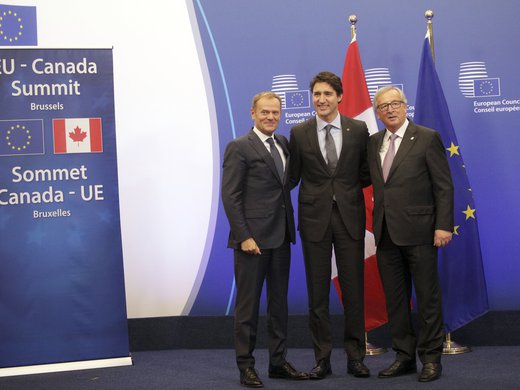A warm welcome in Strasbourg for the first Canadian leader to address the European Parliament is a fitting way to mark the approval this week of a pact that was — for fleeting moments — thought to be in peril.
The Canada-European Union Comprehensive Economic and Trade Agreement (CETA) is a remarkable achievement and reflects the confidence of leaders in both Ottawa and Brussels that a well thought-out free trade agreement will bring benefits to their respective peoples. It serves as a powerful counterpoint to the pervasive pessimism of the times, and suggests that the forces of global economic integration are, if not inexorable, likely to endure passing political theatrics.
Justin Trudeau will understandably want to soak up the plaudits now that the European Union has removed any obstacle to provisional application of the pact pending formal ratification by Canada and each of the 28 EU member states.
But is this all there is to be said? Is CETA the final destination or a stop on a longer road?
Canada and the European Union should not be stopping with an agreement that covers only a small percentage of transatlantic trade. What is needed is a North Atlantic free trade agreement for all the countries of the European Union and the North American Free Trade Agreement (NAFTA).
The economies of North America and the European Union are largely complementary and it is well known that the most immediate and often the greatest benefits of free trade are obtained by agreements between similar economies and neighbours. The trading bloc that is the European Union, as well as NAFTA, is proof of this fact.
Free trade between the countries bordering the North Atlantic represents unfinished business, “low-hanging fruit” waiting to be plucked by leaders who have the courage to do the obvious and to overcome the doubts of some of their peoples. If free trade is good for Canada and the European Union, why is it not good for the European Union and the United States?
There is a further reason for believing that an Atlantic Free Trade Agreement (AFTA) would be good for all countries involved — international competition. We live in an increasingly competitive world where countries compete to provide the circumstances in which companies will thrive and which will encourage innovation and attract new investment. China will soon have a middle class of 500 million people. With this number China can support the launching of any new product and new technological development and it may be that some products and technologies can only be launched in China for this reason. The United States, despite the dynamism of its economy, does not have a middle class of 500 million, but together with the European Union in a North Atlantic pact, this number would be achieved and the necessary economies of scale could be present.
An AFTA would not only increase trade in goods and services, it would also let both parties reach agreement on regulatory issues, thereby allowing the North Atlantic states to set the standards for goods and services around the globe.
The groundwork for an AFTA has already been laid. CETA is a reality and there have been extensive negotiations between the United States and the European Union on the Transatlantic Trade and Investment Partnership (TTIP).
Fears have been expressed in Europe about the alleged dangers of dealing with the United States in a trade agreement. Canada can help to allay these fears.
US President Donald Trump says that he only wants to negotiate on a bilateral basis. Let him complete the TTIP.
In the United Kingdom, supporters of Brexit argue that they want Britain to become the great trading nation that it once was. Let the United Kingdom take up a cause worthy of this ambition and promote Atlantic free trade with their good friend in the White House.
In short, an AFTA is not only necessary, it is possible.
Let this be Prime Minister Trudeau’s bold and ambitious message to European leaders in Strasbourg and to Angela Merkel when he sits down with the German chancellor in Berlin.



